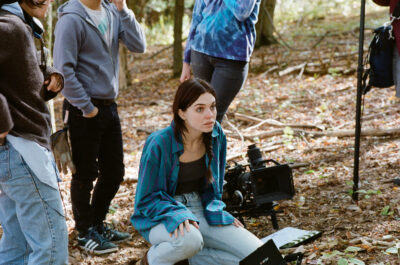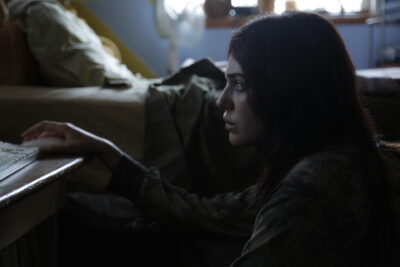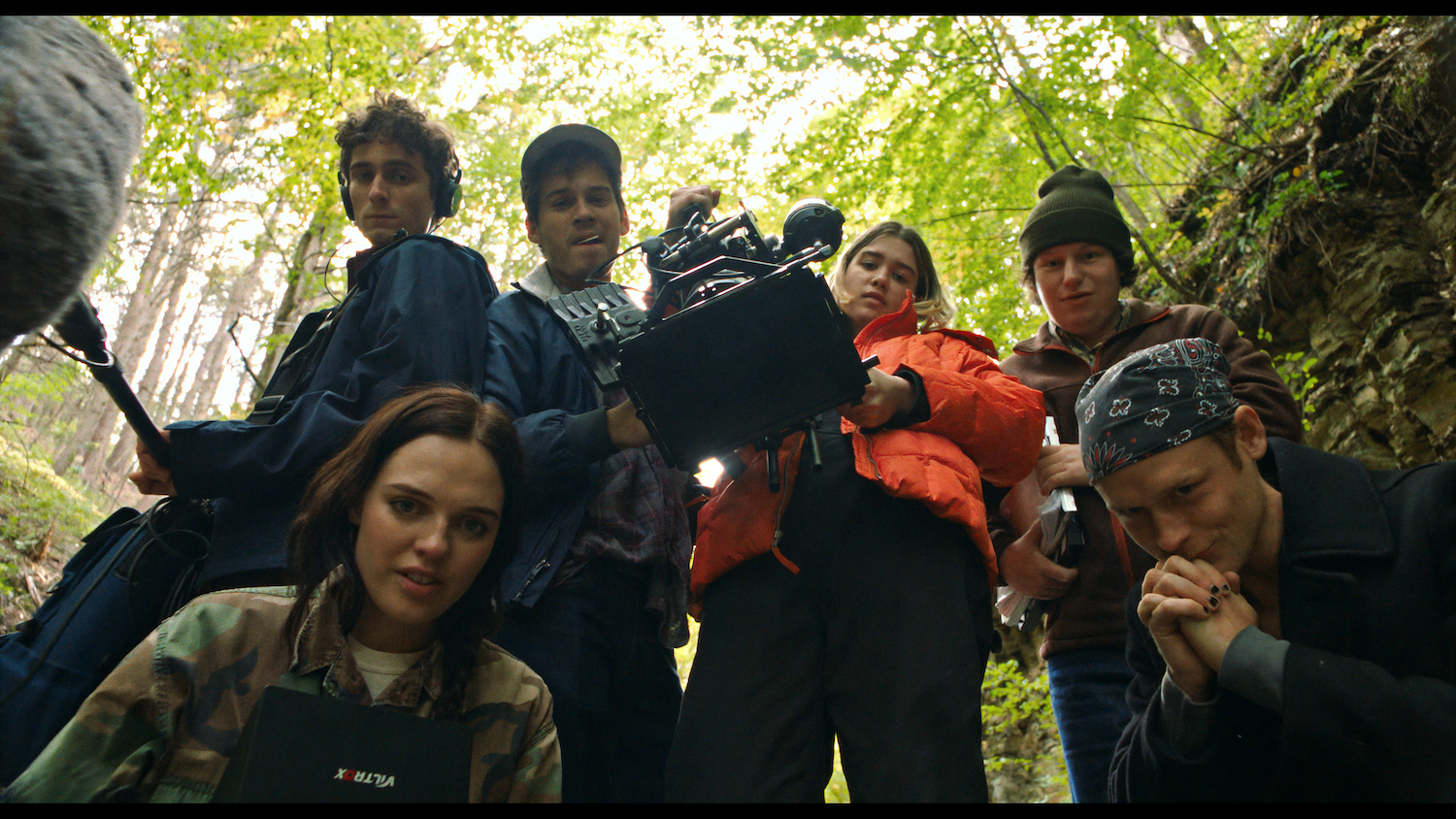My First Film is a semi-autobiographical meta deconstruction of Zia Anger’s experiences as a filmmaker. Available to stream on MUBI on September 6, this honest and compelling feature debut revisits Anger’s never-released film, Always All Ways, Anne Marie, from earlier in her career.
Following the success of Anger’s 2019 multimedia performance of the same name, My First Film is a dramatization of Anger’s first film shoot and all its untold truths. The film stars Odessa Young as Vita, recounting the chaos that unfolded on the set of her first film— a story about a young woman who gets pregnant and decides to leave home.
While Young is meant to represent Anger earlier on in her career, Anger explains that she was chosen based on her ability to captivate audiences, rather than trying to find a direct reflection of herself. She explains that the character of Vita is unlikable, but appears to be trying hard as her film production spirals into chaos, leading to significant disruptions and a near-fatal accident.
Drawing from her own experiences, Anger was confident that her story would resonate with up-and-coming filmmakers and those interested in the craft. “I thought I should write the story down, script it, and I did exactly that with co-writer Billy Feldman. […] It was mostly the urge to make something which the film could speak to,” she says.

Her vision slowly grew into fruition in the transition from live performances to a feature film. However, for several reasons, Anger was left reckoning with feelings of bitterness on the set of My First Film, she says. Taking a step back, Anger saw this as an opportunity to reshape her perspective when it came to filmmaking.
“I set out to fall back in love with making films again. Every day I tried to find joy in the process and I made a promise that I was going to laugh a lot,” Anger says reassuringly.
The entirety of the film was shot in 22 days with over two years in post-production. Anger recalls the editing was “the most challenging part of it all.” She wanted to ensure that audiences could understand it and make sense of the story at hand.

As the film tackles an attempt at filmmaking, this production was a testament to ever-evolving changes. She felt as though the lessons kept coming in the post-production process, which offered new forms of closure.
“There were healing elements to it, but a lot of that was also because I went outside of my own perspective and saw how I treated other people,” says Anger. “In many ways it was healing, but it was also rewriting, being generous, and opening up to a lot of different experiences and perspectives.”



 Follow Us On Instagram
Follow Us On Instagram
